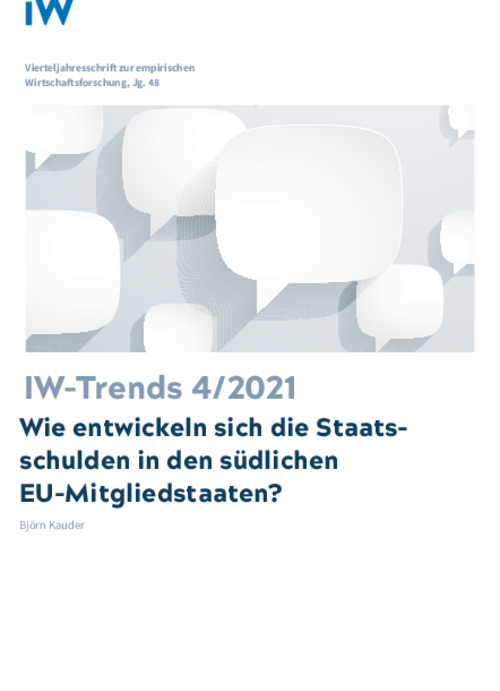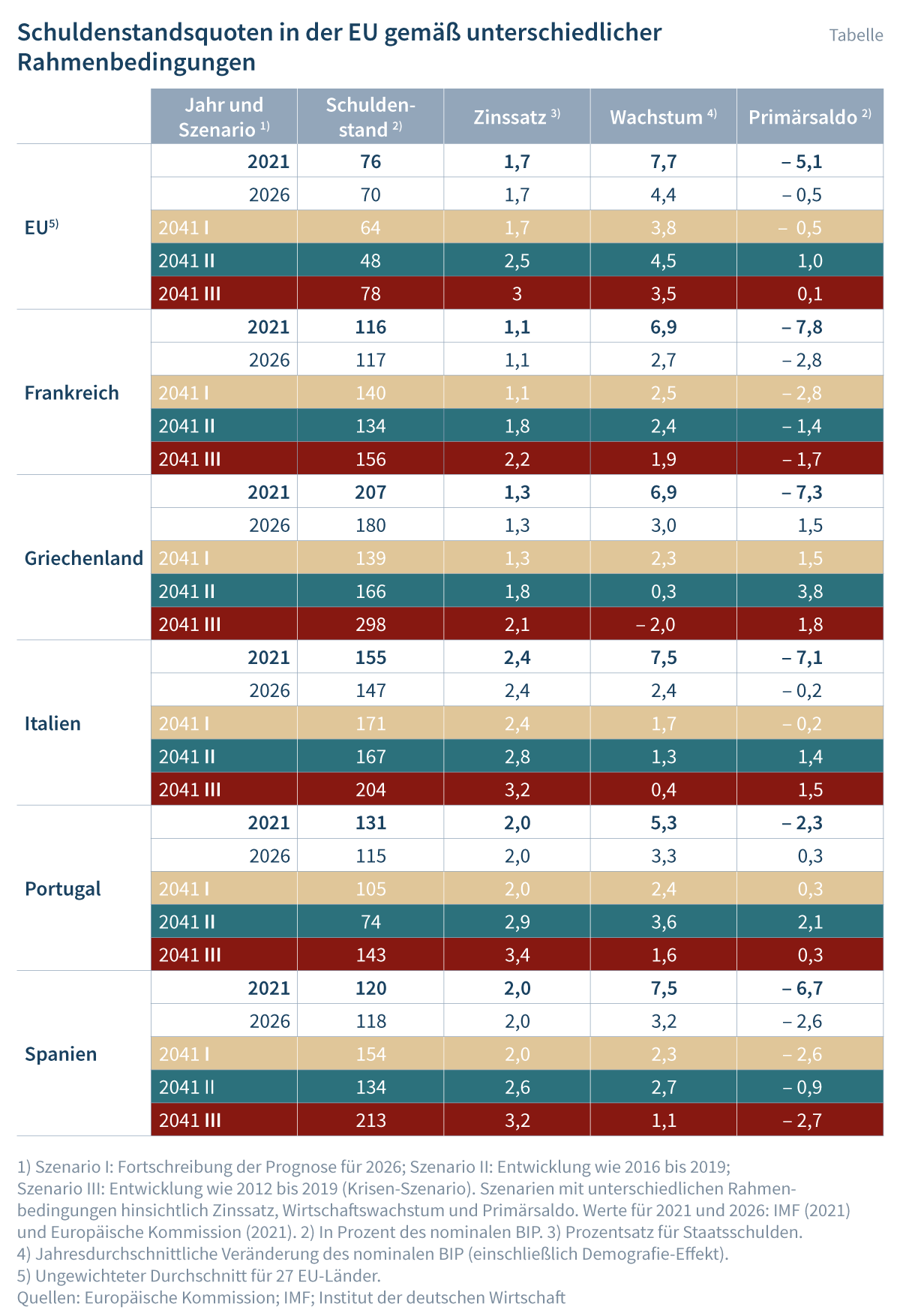Especially in Southern Europe, public debt is missing the targets of the European Stability and Growth Pact by wide margins, leading to concern about the sustainability of public finances.

How is Public Debt Developing in the Southern EU Member States?

Especially in Southern Europe, public debt is missing the targets of the European Stability and Growth Pact by wide margins, leading to concern about the sustainability of public finances.
The present article examines the possible further development of government debt ratios in France and the four southern European EU member states Greece, Italy, Portugal and Spain. Three scenarios are developed for the next 20 years. One continues the values forecast by the IMF for the year 2026. The second and third scenarios are based respectively on the development in the four- and eight-year periods before the onset of the Covid19 pandemic. The results show that only Portugal and Greece can realistically be expected to reduce their debt ratios in the next two decades. Both EU Member States have remarkable primary balances. Moreover, the Portuguese economy is developing handsomely while Greece is benefitting from relatively low interest rates. However, not even Portugal is within reach of reducing its debt to the 60 per cent of GDP envisaged by the Stability and Growth Pact. For France, Italy and Spain, a further increase in debt ratios is to be expected. This is due not least to the weakness of the French and Spanish primary balances, while Italy continues to suffer from a sluggish economy. The sustainability of national budgets thus remains a perennial political and economic challenge – especially in view of the demographic adjustments these countries face.


How is Public Debt Developing in the Southern EU Member States?

More on the topic
China’s Trade Surplus – Implications for the World and for Europe
China’s merchandise trade surplus has reached an all-time high and is likely to rise further. A key driver appears to be a policy push to further bolster Chinese domestic manufacturing production, implying the danger of significant overcapacities.
IW
Is the EU Fit for 55 and Beyond?
Ursula von der Leyen was elected President of the European Commission by the European Parliament in July 2019. She assumed office in November 2019 and unveiled the European Green Deal in December 2019 (European Commission, 2023a) as a focal point of European ...
IW